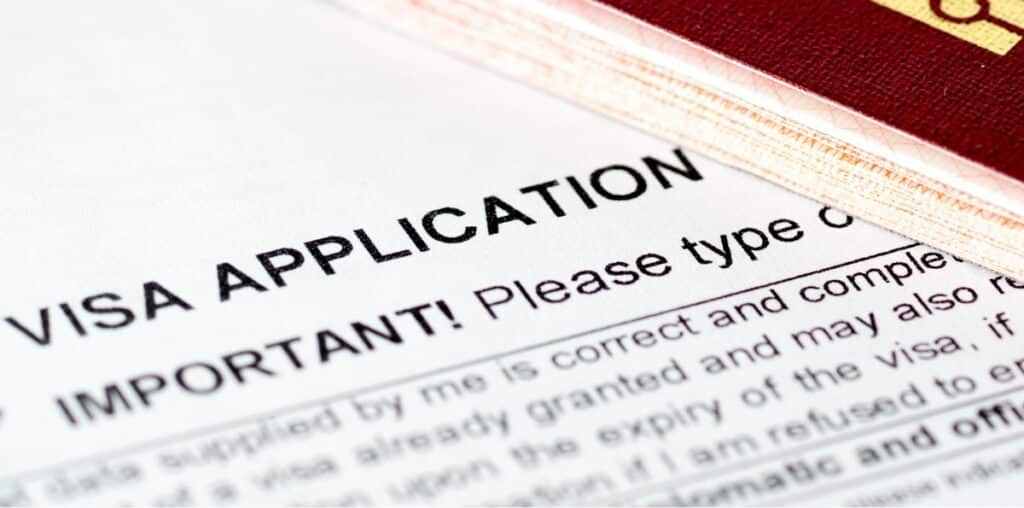78-Year-Old Retiree Recovers £134,000 after Falling Victim to Two Scams
Learn more
If you’ve lost money to a purchase scam, you’re not alone, and you may be able to get your money back with the right help.
Check if you're eligible

Purchase scams are the most common type of authorised push payment (APP) fraud, accounting for nearly 120,000 cases and £67 million lost in 2022.
An authorised push payment is a bank transfer that is verified by the account holder, usually to pay for an online service. In APP fraud, the account holder is manipulated into authorising the payment themselves, often by a scammer operating through online marketplaces or social media platforms.
Whether you’re shopping for a car, a new piece of technology like a MacBook or iPhone, furniture, or even a holiday rental, be cautious of deals that seem too good to be true. Scammers often use fake websites or place bogus adverts on legitimate sites like eBay, Facebook Marketplace, and Gumtree.
Identifying online fraud can be challenging, but here are some warning signs to watch for:
Stick to reputable stores or marketplaces with good buyer protection. Be cautious when using unfamiliar sites. Check online reviews for the store and make sure they use legitimate and secure payment platforms.
Be especially wary if a seller asks you to use unsecured payment methods like cash-in-hand, bank transfers, or PayPal Friends and Family. These methods offer little to no buyer protection.
Avoid sellers who request payment in cryptocurrency. These transactions are difficult to trace and often irreversible. It is a red flag if the online platform requests cryptocurrency.
Be cautious of sellers who pressure you to act quickly, claiming limited availability or other urgent reasons. Even if the item is truly limited, it is not worth the risk of falling into a scam.
While Facebook Marketplace can be a great place to find deals, it's also a hotspot for scammers. There are fewer buyer protections for these types of platforms compared to registered, legitimate stores. Be wary of deals that seem too good to be true, especially if the seller requests a deposit or payment upfront.
Scammers can easily set up fake accounts on Instagram and TikTok, impersonating legitimate sellers or brands. Be cautious of accounts selling knock-off goods or poor-quality products masquerading as high-value items.
eBay is a popular online marketplace, but it's not immune to scams. Always use secure payment methods and check seller reviews, especially for expensive items. Be wary of sellers who ask for payment outside of eBay to avoid fees. Where possible, ask to see any big purchase in person before exchanging any money.
PayPal is commonly used for online transactions, but scammers may exploit it by providing fake tracking information or by simply pretending to ship the item. PayPal’s Friends and Family payment method should be always avoided, as it offers no buyer protection and PayPal will refuse to help you should something go wrong.
Buying a car is a significant investment. Scammers may claim to own a vehicle they don't or seriously misrepresent its condition. Always inspect the vehicle and verify its history before making any payments.
Fraudsters may use social media posts and fake travel websites to lure victims with offers for flights, rentals, and holiday accommodations at unbelievably cheap prices. Always verify the legitimacy of such offers before making payments.
In a puppy scam, "sellers" advertise non-existent or poorly treated puppies for sale, often at below-market prices. Victims may be persuaded to send a deposit or pay upfront, only to never receive the puppy or receive one in poor health.



How Do Romance Scammers Find Their Victims?
They create enticing deals with unrealistically low prices or promise of exclusive offers.
Scammers send unsolicited emails or messages leading recipients to fraudulent websites or listings.
They use high-pressure sales tactics to rush victims into making impulsive decisions.
Scammers often request payments through insecure methods or ask for unnecessary personal or financial information.
They create enticing deals with unrealistically low prices or the promise of exclusive offers.
If you’ve been a victim of a purchase scam, report it quickly to your bank and the police. CEL Solicitors specialise in recovering money lost to purchase scams. If your bank refuses to help, we will be your advocate.
Thousands of people across the UK have trusted us to help reclaim their money from purchase fraud. We’ll provide expert, compassionate support tailored to you. Just Tell CEL.
Speak to our friendly team today. You are not alone, and you may have a case.
At CEL Solicitors, we have a dedicated team of financial recovery experts who specialise in helping clients recover money lost to scammers.
We carefully review all the financial transactions related to your case. If we find that a financial institution could have done more to protect you from fraud, we will make a formal complaint on your behalf and seek compensation.
If the scammer can be identified and has assets, we can also take legal action against them to recover your money.
While every case is different and recovery is not always guaranteed, we are relentless in supporting you to get the best possible outcome.
Yes, we can help trace and recover money lost to cryptocurrency scams.
Our experts use specialised software called Chainalysis Reactor to follow the trail of cryptocurrency transactions on the blockchain. This helps us identify where the funds have gone, often to a crypto asset exchange provider, so we can work on recovering them for you.
Yes, you can contact your bank or financial institution directly to try to recover your money. If you’re unhappy with their response, you have the right to make a formal complaint.
However, if you choose to work with us, we bring technical knowledge and legal expertise to give you the best chance of success. We’ll handle the complex steps for you and can represent you if the case needs to go to court.
You’re not alone in this — we’re here to guide and support you every step of the way.
No, we work on a no-win, no-fee basis. If we are unsuccessful in recovering your money then you won’t pay us a penny. We also offer free initial, no-obligation advice so you have nothing to lose by getting in touch with one of our friendly advisors today. We can start working on your case as soon as you formally instruct us, and our paperwork has been signed. Additionally, you have a 14-day cooling-off period, after you’ve signed our initial documents if you change your mind.
When you’re dealing with a legal issue, whether it’s a scam, a housing dispute, or a case of professional negligence, it’s important to know you’re in safe hands.
We understand that many of our clients come to us after being misled, mistreated, or let down. It’s only natural to feel cautious when choosing a law firm to support you.
CEL Solicitors is a fully regulated law firm. We don’t ask for any upfront payments, and we work on a no-win, no-fee basis wherever possible, meaning you won’t pay us a penny unless your claim is successful.
You can confirm that CEL Solicitors is genuine by checking our credentials:
We are authorised and regulated by the Solicitors Regulation Authority (SRA). Our SRA number is 633955.
CEL Solicitors is a trading name of Cheshire Estate and Legal Limited (company number: 10370954).
You’ll find us listed on the SRA’s official Solicitors Register – just click the SRA badge at the bottom of this page or visit the SRA website.
We’re also listed on the Law Society’s ‘Find a Solicitor’ tool. This is a free and trusted way to check legal professionals.
If you’re ever unsure, just tell CEL. We’ll help you verify everything for yourself.
We use a variety of approaches to help recover your money, tailored to your specific case.
First, we investigate whether the financial institution involved could have done more to detect or prevent the fraud. If so, we make a formal complaint and seek compensation from them.
If the scammer can be identified and has assets, we can take legal action to recover funds directly from them.
To support this, we work with specialist forensic accountants who trace where the money has gone. We also have a trusted network of law firms around the world to help recover funds hidden offshore or in other countries.
Our team is committed to pursuing every possible avenue to get your money back.
“No-win, no-fee” means you won’t pay us anything unless we win your case.
There are no upfront costs and no hidden charges. If your claim is unsuccessful, you won’t owe us a penny. If we win, our fees will be taken from the compensation we recover for you — and we’ll explain all of this clearly before you sign anything.
It’s a simple promise: if you don’t win, you don’t pay.
It’s common to feel responsible if you authorised a payment that turned out to be fraudulent. You might think there’s nothing you can do, especially if your bank has refused to refund you.
But don’t lose hope. We specialise in the financial rules, regulations, codes of conduct, and legal processes that can help challenge those decisions and recover your money.
Our expertise is why our fraud recovery success rate is so high — and why many clients who initially thought they had no options have been able to get their money back.
If you’re worried about fault, just tell CEL. We’ll guide you through your options with care and honesty.
At CEL Solicitors, we help clients recover money lost to a wide range of Authorised Push Payment (APP) frauds. These scams trick you into authorising payments to fraudsters, often through highly convincing stories or pressure tactics. Common types include:
Investment scams: Promises of high returns through trading, cryptocurrency, or other ‘opportunities’ that turn out to be fake.
Impersonation scams: Fraudsters posing as trusted organisations like banks, the police, HMRC, or utility companies to get you to send money.
Romance scams: Scammers build trust by pretending to be a romantic partner, often overseas, before asking for financial help.
Crypto scams: Fake cryptocurrency investments or exchanges designed to steal your funds.
Advanced fee fraud: Requests for upfront fees to release non-existent loans, prizes, or inheritances.
Purchase scams: Payment for goods or services that never arrive, such as vehicles or electronics.
Invoice scams: Fake or altered invoices sent to businesses or individuals to divert payments.
Job scams: Fraudulent job offers requiring you to pay fees or provide money upfront.
If you’ve been targeted by any of these scams or similar ones, you’re not alone — and we’re here to help you take back control and recover what you’ve lost.

Get in touch now to see how we can help you recover from fraud.